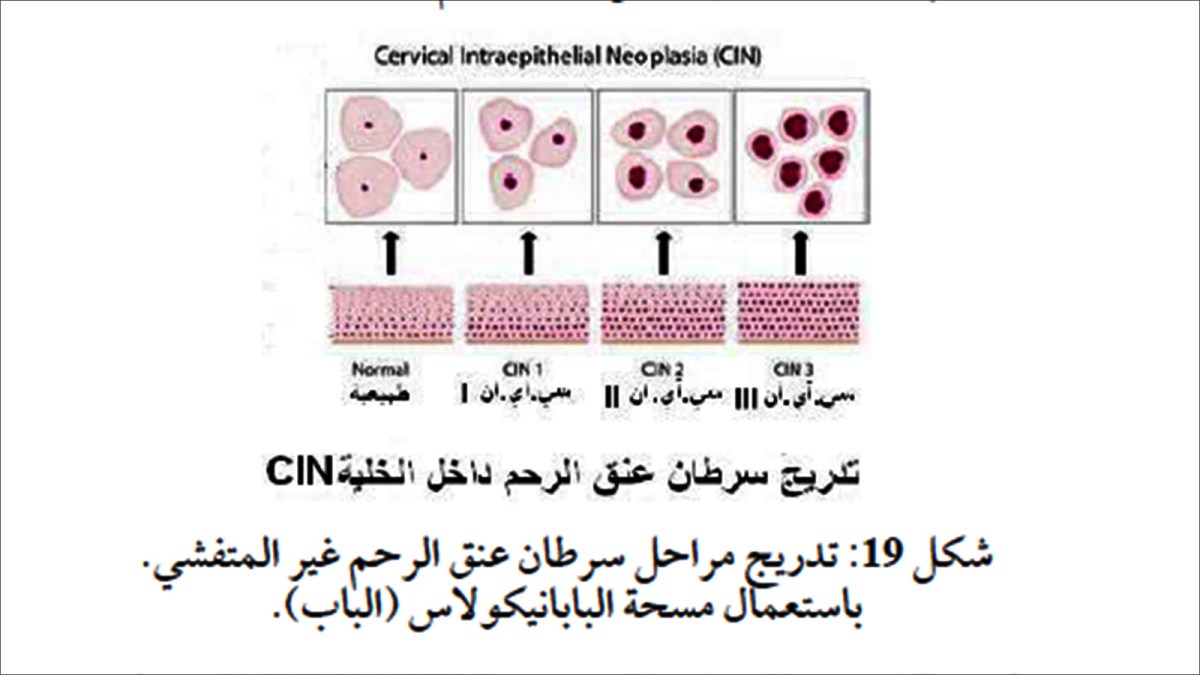Dr. Robert DiBernardo, an obstetrician-gynecologist and chief of the Department of Gynecological Oncology at Cleveland Clinic, said that the ongoing research and immunotherapies developed to treat patients with cervical cancer - especially in its advanced stages - give hope to hundreds of thousands of women around the world. The world, stressing the importance of women's commitment to conduct the required examinations periodically as a vital tool to prevent disease.
According to the World Health Organization, cervical cancer is the fourth most common type of cancer among women worldwide, and is mainly caused by infection with high-risk types of human papillomavirus (HPV).
In its latest report, the organization estimates that 604,000 new infections and 342,000 deaths due to cervical cancer were recorded in 2020.
DiBernardo explained that the positive news is that cervical cancer can be prevented and can also be treated, especially when detected early, and ongoing research is being conducted and new immunotherapies are being developed that can provide better results with fewer side effects.
Evolution of cervical cancer (Arab Scientific Society Organization)
Immunotherapy
Dr. DiBernardo said that checkpoint inhibitors have been successful in treating lung and skin cancer, so they represent a very important new class of drugs that can be approved for the treatment of cervical cancer, although we are still in the research and discovery phase to learn more about their effectiveness.
He added that while traditional treatment methods rely on surgery, chemotherapy and radiation to remove or kill cancer cells, immunotherapy works to stimulate the body's immune system to attack cancer cells.
DiBernardo noted that the body's immune system can initially identify cancer cells in the same way it identifies a bacterial infection, and then attack them.
As cancer cells grow and spread, he said, they develop mechanisms to hide from the immune system, for example, using "checkpoint" proteins that the immune system uses to identify healthy cells.
He added that new drugs based on stimulating immunotherapy target these checkpoints, so that the immune system can recognize and destroy cancer cells.
Dr. DiBernardo adds that because the new drugs enhance the body's immune system, they are generally well tolerated with fewer side effects compared to chemotherapy or radiation, and in addition to that, immunotherapy can improve long-term survival rates, especially in Advanced cases of cervical cancer.
He pointed out that the results of these drugs could be better in the future, and we expect in the coming years to learn more about how to customize treatments using these drugs, for example by combining them with other drugs suitable for certain types of tumors, in order to improve results.
Vaccines and checkups
Dr. DiBernardo noted that while new treatments offer more hope in the battle against cervical cancer, we must not forget that "an ounce of prevention is worth an pound of cure."
He added that recent research in the United Kingdom and Australia showed the effectiveness of human papilloma virus (HPV) vaccine programs in reducing the incidence of cervical cancer and pre-cancerous stages.
However, more research is still needed, DiBernardo said, and regular screenings for cervical cancer are vital, even in countries with immunization programs already in place.
"Some people may choose not to receive the vaccine, for example, or rare forms of cervical cancer may not be associated with HPV, so the vaccine will not be effective in such cases," he said.
Dr. DiBernardo stressed the importance of conducting the required examinations periodically, because cervical cancer can develop slowly over many years, as pre-cancerous cells become cancerous, so women who are at a natural risk of developing cervical cancer should Begin regular screenings starting at age 21 and continue until age 65, as recommended by the U.S. Preventive Services Task Force.
He said that the cervical smear is the most common type of test for detecting cervical cancer, which includes scanning the cervix to collect cells and analyze them afterwards, to see if they contain high-risk types of human papilloma virus or the presence of any changes. Cells in the cervix indicate a pre-cancerous stage.
DiBernardo added that while screening guidelines vary from country to country, we recommend that women visit their gynecologist every year, and follow his or her guidance about regular screening times based on the individual's risk profile.

